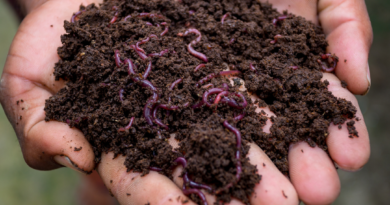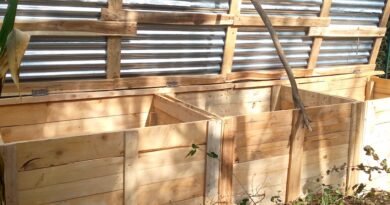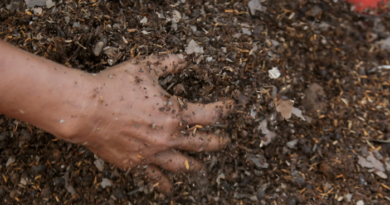5 Commonly Asked Questions About Composting
Composting is a relatively straightforward process for recycling food waste. This blog post discusses five common questions about composting to help you get your compost going as quickly as possible!
What are the benefits of composting?
Composting is an excellent way to reduce the amount of waste that goes into landfills. By composting your organic waste, you can create a nutrient-rich soil amendment used to improve the quality of your garden soil or potted plants. Composting also reduces the methane emissions from decomposing organic matter in landfills, significantly contributing to climate change.
In addition to reducing the amount of waste going into landfills, composting also saves you money on disposal costs and fertilizers. Proper management means a compost pile can produce finished compost in as little as six weeks.
Many different composting systems are available, sure to meet your needs. If you have limited space, there are small-scale options such as worm bins or bokashi fermentation. You can build or purchase a large compost bin if you have more space.
Is composting safe, and how does it work?
Composting breaks down organic matter, such as food scraps and yard waste, into a rich soil amendment known as compost. Compost is safe to use in gardens and lawns and helps improve plant health and vitality by adding essential nutrients to the soil.
The composting process happens naturally in the environment but can also be done in a backyard compost bin or tumbler. Compost bins and tumblers provide the perfect environment for microorganisms to break down organic matter quickly. The microorganisms need four things to thrive: oxygen, water, carbon-rich material (known as “browns”), and nitrogen-rich material (known as “greens”).
- Oxygen is necessary for the microorganisms to breathe; they will die without it.
- Water helps break down the organic matter and keeps the microorganisms alive.
- Browns are carbon-rich materials, such as dead leaves, twigs, and shredded newspaper.
- Greens are nitrogen-rich materials, such as grass clippings and fruit & vegetable scraps.
The ratio of browns to greens should be about 3:1. Too much green material will make your compost smelly; too much brown material will take too long to decompose.
Once you have your bin or tumbler set up, you simply add your organic matter regularly and stir or turn it periodically to aerate it. In about
Where should I put my compost?
There are a few different options for where to put your compost. If you have the space, you can dig a hole in your garden and bury the compost. It is a good option if you don’t want the compost to be visible. Another option is to build a bin out of wood or wire mesh. It will keep the compost contained and organized. You can also buy commercial compost bins specifically designed for this purpose.
How can I make my compost better?
There are several things that you can do to make your compost better. Here are a few tips:
– Add a mix of green and brown materials. Green materials include fruit and vegetable scraps, coffee grounds, and grass clippings. Brown materials include things like dry leaves, twigs, and shredded newspaper. Mixing the two will provide the best environment for your compost to break down properly.
– Make sure your compost pile is moist but not too wet. If it’s too wet, your compost will start to smell bad. If it’s too dry, it won’t break down as quickly. The perfect moisture level is somewhere in the middle.
– Turn your compost regularly. It aerates the material and helps speed up the decomposition process.
By following these tips, you can ensure that your compost is the best it can be!
Should I smell for foul odours?
Foul odours are a sure sign that your compost pile is not operating correctly. The three main culprits of foul odours are too much moisture, not enough oxygen, or the presence of pathogens. If you notice a bad smell, check your compost pile for these conditions and adjust as needed.
How often should I turn/mix up my compost mix?
There is no definitive answer to this question, as it depends on several factors, such as the type of compost bin you are using, the temperature and moisture levels in your compost, and the materials you are composting. However, as a general guide, it is recommended that you turn your compost pile every two weeks or so. It will help to aerate the compost and encourage the breakdown of organic matter.




